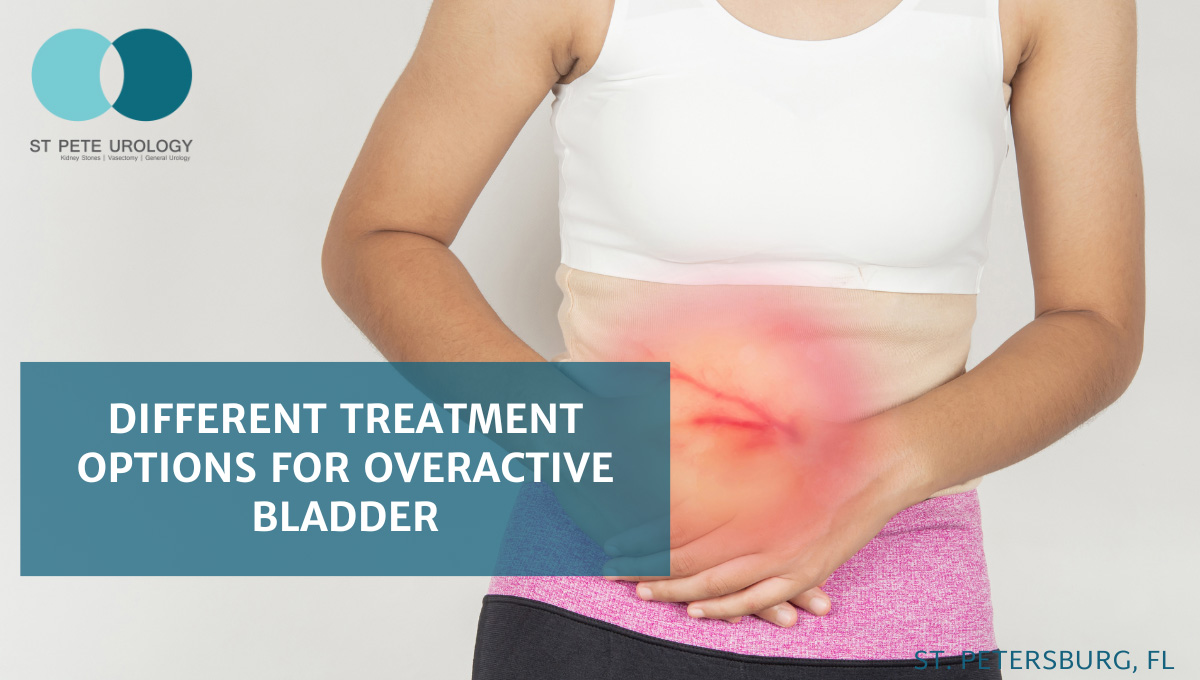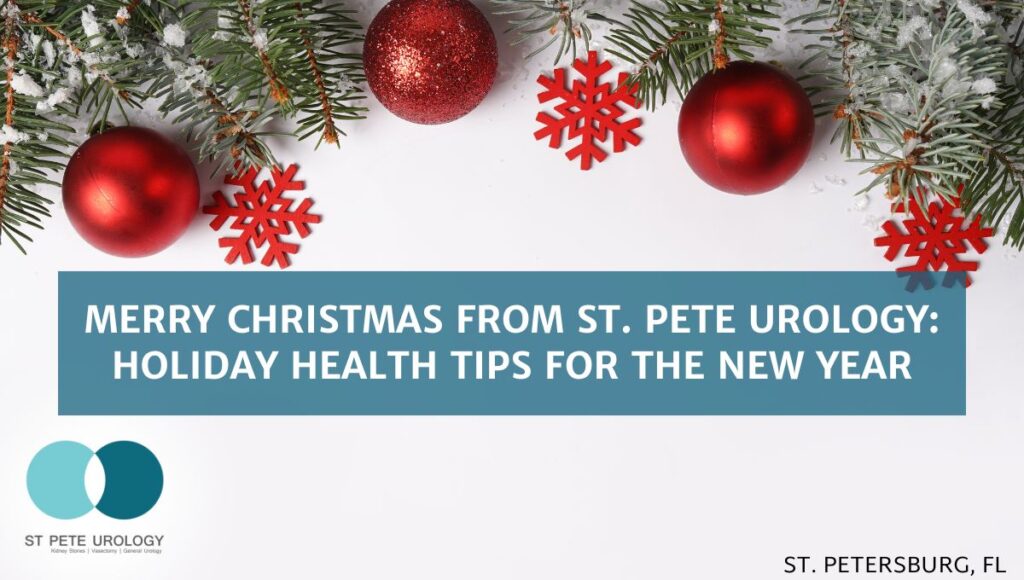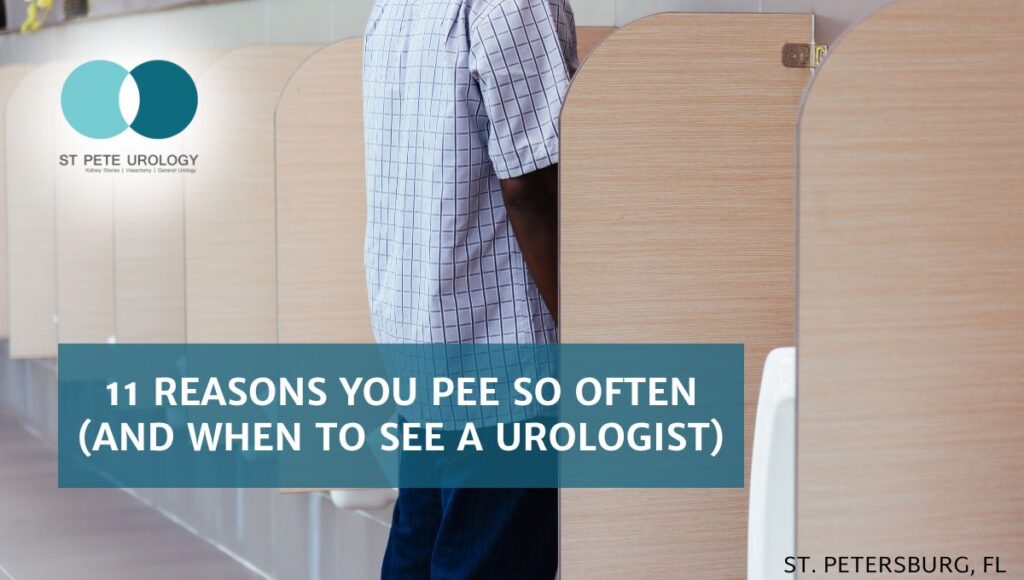St Pete Urology
- Understanding and treatment for overactive bladder is possible with the help of an expert urologist.
- Lifestyle and dietary changes, Kegel exercises, and therapy sessions can all help with incontinence.
- Medications may be necessary but also come with potential side effects, so they should be considered after lifestyle changes have proven insufficient.
 When it comes to urological health, overactive bladder often stands as an intrusive and uncomfortable condition. Fortunately, as the top urologists of St. Petersburg, FL, Dr. Nicholas Laryngakis and Dr. Reid Graves assure, understanding and treatment for the condition are within reach.
When it comes to urological health, overactive bladder often stands as an intrusive and uncomfortable condition. Fortunately, as the top urologists of St. Petersburg, FL, Dr. Nicholas Laryngakis and Dr. Reid Graves assure, understanding and treatment for the condition are within reach.
Beginning with Education
The journey of addressing overactive bladder begins with understanding the complexity of the condition — a topic Dr. Laryngakis and Dr. Graves have spent years specializing in. “We’ve had five years of urology training in residency and med school before that, and the topic tonight is something that we do have a lot of focus in and enjoy taking care of,” says Dr. Laryngakis.
An essential part of understanding overactive bladder lies in the realm of diagnosis. Dr. Graves underlines the importance of finding a specialist to ensure the correct diagnosis and treatment. Discovering potential causes of the symptoms, such as an enlarged prostate or even cancer, is how we pave the way for efficient treatment.
Establishing a Healthy Lifestyle
Treatment options span numerous methods, starting with lifestyle and dietary changes. “It’s really important that doctors and patients sort of step back and see if there’s other things they can do before proceeding with interventions or medications,” advises Dr. Graves.
Reducing the intake of caffeine, Red Bull, energy drinks, tea, or soda can significantly relieve an overactive bladder, as they often wreak havoc on the urinary system. Often, a healthy diet and regular exercise can greatly help with incontinence by reducing pressure on the bladder.
Additionally, activities such as Kegel exercises — squeezing the sphincter muscle to retain urine — may help strengthen the pelvic floor and control leakage. Some may also opt for therapy sessions with specialized machines to stimulate and strengthen the bladder’s sphincter muscle.
Beyond Lifestyle: Medications and Advanced Therapies
However, when adjustments to lifestyle and diet fail to fully address the problem, we consider medicinal interventions. These interventions, while less direct than lifestyle changes, target specific receptors that focus on bladder control.
Dr. Graves warns that while helpful, medications might carry side effects such as dry mouth, blurry vision, constipation, and elevated blood pressure. “As much as 70 percent of people within six months either want to change a pill or they come off the pills altogether,” says Dr. Graves. Thus, the route of medications is usually considered after lifestyle changes have proven insufficient.
The Way Forward with St Pete Urology
In the heart of St Petersburg, FL, St Pete Urology offers a team of expert urologists capable of providing an extensive array of treatment options for overactive bladder. With their depth of training and specialty in bladder control and dysfunction, they are committed to finding the right treatments for their patients. They understand the nuances of the condition and aim to ensure the most accurate diagnosis and effective, personalized treatment plans.
With a unique approach that values lifestyle modifications, medications, advanced therapies, and valuable patient-doctor conversations, St Pete Urology stands as a leading resource for individuals struggling with overactive bladder. Centrally located within FL, the practice remains dedicated to turning the tide against this uncomfortable, yet treatable condition. With the right guidance and treatments, an overactive bladder doesn’t have to dictate your life.
References:
- “Food and Drink to Tame an Overactive Bladder – WebMD.” 27 Jan. 2022, https://www.webmd.com/urinary-incontinence-oab/food-drink.
- “Kegel exercises – self-care: MedlinePlus Medical Encyclopedia.” 1 Jan. 2023, https://medlineplus.gov/ency/patientinstructions/000141.htm.
- “Treatment Options for Overactive Bladder – WebMD.” 9 Sep. 2023, https://www.webmd.com/urinary-incontinence-oab/overactive-bladder-treatment-finding-best-options.
Transcription:
Dr. Nicholas Laryngakis (Board Certified Urologist):
Tonight, we’re going to talk about bowel and bladder control primarily. So Dr. Graves and I both actually trained together at the University of Pennsylvania in Philadelphia, and we’ve been each practicing for close to 10 years, and we’ve had five years of urology training in residency and med school before that, and the topic tonight is something that we do have a lot of focus in and enjoy taking care of and have specialty in.
All right. There is some good news. I gave you a lot of bad things there and bad symptoms that patients have to deal with, but a lot of these are highly treatable and can be assessed, and I’m going to turn it over to Dr. Graves next, and he’s going to tell you about different treatment options.
Dr. Reid Graves (Board Certified Urologist):
All right. Thank you, Dr. Laryngakis, because that was an excellent review on the physiology of bowel and bladder control, and I think we all learned a lot on that, but there is good news. We do have a lot of opportunity to help these items and this physiology that sometimes goes awry. I do think it’s important to stress that diagnosis is important. A lot of patients have these symptoms, and it’s important to find a urologist or someone that specializes in bowel and bladder dysfunction to make sure that this is actually what’s going on.
Sometimes there are things that can be more severe that you need to make sure that you get the right diagnosis before you have the right treatment, so that is important to rule out things that could be causing these symptoms, such as a big prostate or even cancer sometimes, so sometimes these things need to be evaluated, but once you do have the right diagnosis and you’ve established that we’re dealing with overactive bladder or fecal incontinence, then we sort of go down the treatment pathway, well, how do we make this better? I think he touched on an important topic about the pot of coffee, and I think that’s important because a lot of people sort of skip over that.
You go to the doctor, you get a pill, and I think it’s really important that doctors and patients sort of step back and see if there’s other things they can do before proceeding with interventions or medications, and some of those things are as easy as cutting back on caffeine or tea or soda, Red Bull, energy drinks, those are big culprits. All these things wreak havoc on the urinary system, especially for some people that are more sensitive to these, so that’s a very important topic.
In addition to that, dietary changes with fecal incontinence, sometimes just having more fiber in the diet can help with the stools. Once you kind of get on with the lifestyle and dietary changes, then oral medications and advanced therapies, and I’ll touch on both of these. In terms of exercising, just healthy diet and exercise often helps weight loss to keep the pressure off the bladder, that can alone help with incontinence.
Floor therapy is very common and something that really does work, sometimes that’s done at home just by doing Kegel exercises, which is essentially squeezing the sphincter muscle to keep the urine in and practicing that, and we have ways to show you how to do that. In addition to that, sometimes patients will actually come into the office where we have a therapist and a machine to help them stimulate the sphincter muscle, strengthen it, and practice those Kegel exercises with biofeedback.
All of those things have been shown to really help with leakage and strengthening the pelvic floor. So once we’ve gone through those options and patients have cut back on the coffee and cut back on the caffeinated beverages and done their Kegel exercises and they’re still having issues, then we move on to trying a medication, usually before we get to the more advanced therapies such as InterStem.
Most patients, by the time they get to us, have tried a medication or two, and if they have not, we usually do try a medication. Medications are not an electrode that goes directly to the nerve, to the bladder, right? They go into your body, you ingest them, and then they get pumped all over to all your cells in your body, but they obviously go to certain receptors that focus on the bladder pharmacologically.
So while they are focused on relaxing the bladder and preventing that overactive bladder or leakage, they do have side effects. Some of those can be dry mouth, blurry vision, constipation, and even increased blood pressure. And these are real side effects that a lot of people see on a regular basis, and it’s a problem and people often will come off their medicines due to this, and as much as 70 percent of people within six months either want to change a pill or they come off the pills altogether.
So while medications do serve a purpose, and some people really like pills, they often can interact with other medicines or due to other medical conditions or issues or just side effects, people will want to come off of them.





